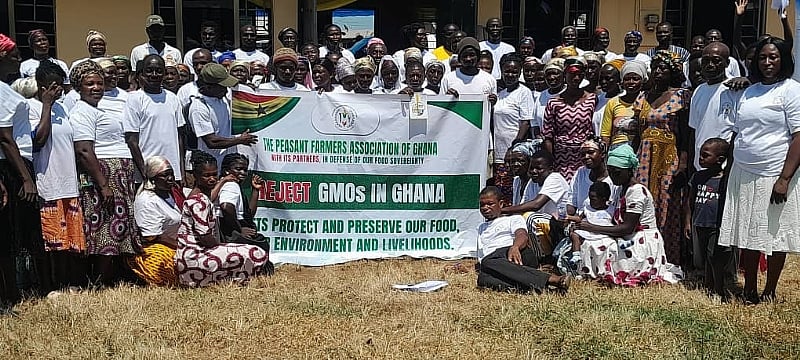At a recent workshop held in Dambai, Mr. Bismark Owusu Nortey, the Acting Executive Director of the Peasant Farmers Association of Ghana (PFAG), passionately advocated for the rejection of Genetically Modified Organisms (GMOs) among local farmers. Emphasizing the importance of sustainable farming practices, Mr. Nortey discussed the negative consequences associated with GMOs, including potential health risks for consumers, environmental degradation, and threats to agricultural livelihoods. His message resonated with the approximately 70 farmers from across the Oti Region who attended the workshop, all of whom were encouraged to adopt organic, manual farming methods instead of relying on genetically modified crops.
Mr. Nortey’s warnings about GMOs were rooted in well-documented concerns regarding their impact on human health and ecological systems. He illuminated the issue of seed sovereignty, emphasizing how GMOs can lead to dependency on seed companies and undermine traditional farming practices. According to Mr. Nortey, the shift towards organic farming would not only protect farmers’ livelihoods but also empower them to reclaim their agricultural independence. He reinforced the idea that organic methods support soil health, enhance biodiversity, and promote climate-resilient agriculture, resulting in improved crop yields and quality.
As an additional note of caution, Mr. Nortey advised farmers to be discerning when purchasing food crops from markets, as the proliferation of GMO products poses risks to consumer health and the environment. He urged attendees to check labels for indications of GMOs and to advocate for transparency within the food system. By staying informed, farmers could make choices that align with their health and sustainability goals, thereby contributing to a more robust agricultural framework in the region.
The feedback from workshop participants showcased a welcoming reception of PFAG’s educational efforts. Farmers expressed gratitude for the valuable insights they gained regarding the potential risks and implications of GMOs, vowing to shift away from modern, GMO-dependent agricultural techniques. Statements from attendees, such as Mr. Nyatikor Akpaglo, a municipal focal person, reflected a renewed commitment to traditional farming methods, which they viewed as a return to their roots and the time-tested practices of their ancestors.
In the aftermath of the workshop, Mr. Nortey highlighted the significance of empowering farmers through knowledge and education on sustainable practices. He orbited the idea that a greater understanding of the issues surrounding GMOs would lead to more informed choices among farmers, facilitating a transition toward healthier farming methods. This empowerment is critical in fostering a sustainable food system that prioritizes both well-being and ecological considerations.
Mr. Nortey’s advocacy for traditional agricultural practices represents a broader movement within the PFAG, reaffirming their commitment to promoting farmers’ rights and sustainable agriculture in Ghana. The enthusiasm from local farmers suggests a community-wide readiness to engage in practices that benefit both people and the environment, signifying a potential shift in local agricultural paradigms that honors heritage while pursuing sustainability. Through workshops like these, PFAG is not only educating farmers but also advocating for a future rooted in agricultural independence and resilience.














